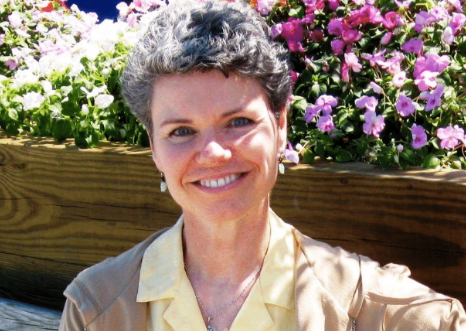By Erica Wright
The Birmingham Times
To research her definitive biography on Emory O. Jackson—the tireless voting rights advocate and legendary editor of the Birmingham World—author Kimberley Mangun spent 10 years going over every facet of Jackson’s life, including each edition of the newspaper he published.
“I started researching him in 2009, and it took me 10 years to complete the project,” she said in a recent telephone interview from Salt Lake City, Utah, where she is an associate professor of communications at the University of Utah.
“Much of [Jackson’s] legacy [is included in] the papers he saved and the correspondence he wrote that was saved. I had to start digging into that to really understand what he did during his career and how he did it. I had to look through microfilm to read every single issue of the paper during the 30-year period [that he served as editor], so that took a fair amount of time.”
The result of Mangun’s research: “Editor Emory O. Jackson, the Birmingham World, and the Fight for Civil Rights in Alabama, 1940–1975,” which was published in 2019. The author will be in Birmingham on Sunday, January 19 at the Birmingham Central Library (Linn-Henley Building, 2100 Park Place, Birmingham, AL 35203) to discuss Jackson, the Black Press, and her book; the lecture begins at 3 p.m.
“Specific chapters of the book look at some of the issues [Jackson] felt were particularly important both to him personally and to people in Birmingham and Alabama generally—things like gaining the right to vote, fighting for equal education and Civil Rights. He talked and wrote a regular column called the ‘Tip Off’ about these issues,” said Mangun. “He was a very passionate writer and speaker, so the book tries to put that into context, but he also needs to be considered one of the Civil Rights figures in Alabama and the overall movement.”
Trailblazer and Pioneer
Emory Overton Jackson, a trailblazer and pioneer, dedicated his life to advocating for disenfranchised black people. He was a voting rights activist, as well as the founder and first president of the Alabama State Conference of the National Association for the Advancement of Colored People (NAACP) branches. He also was one of the many voices of the Black Press during the Civil Rights Movement, serving as editor of the Birmingham World from 1941 until his death in 1975.
Jackson was born in Buena Vista, Ga., and his family relocated to Birmingham, where he was raised with his seven siblings in the Enon Ridge neighborhood on the west side near Birmingham-Southern College. He attended Industrial High School (later named A.H. Parker High School), and in 1928, he enrolled in Atlanta’s Morehouse College, where he was president of the student government and editor of the school’s newspaper, the Maroon Tiger.
Mangun chose Jackson as a subject after meeting Hank Klibanoff, co-author of Pulitzer Prize–winning book “The Race Beat: The Press, the Civil Rights Struggle, and the Awakening of a Nation, a 2006 book about the role of newspapers and television covering the Civil Rights Movement.
“Faculty members at [the University of] Utah are expected to do research and contribute to public knowledge, and I’m very interested in studying Civil Rights and figures of the Black Press. My first book was about a Civil Rights activist and editor in Portland, Ore.,” Mangun said. “[While] in the process of finishing that book and … starting to look for another research project, I had some interaction with [Klibanoff], who came to my campus to work on a project with me. We were talking about his book, and I asked him if there was someone in the book that warranted more study. Without even pausing, he said, ‘Emory O. Jackson.’”
Fascinating Study
Mangun, who lives in Utah, spent countless hours visiting archives and doing research in Birmingham and Atlanta—and what she uncovered as fascinating, she said.
“[Jackson] had a very small staff. Primarily, it was him and one other reporter, so they wore a lot of hats,” she said. “He [not only] ran the newspaper but also [sold] advertising, as well as wrote editorials, much of the news content, and his regular column. He faced a lot of challenges because … he was working essentially this very tight, shoestring operation, publishing two days a week. As a former journalist, I found it really incredible that he was able to do that for 35 years at that pace. I think the other layer of that is the Black Press is so incredibly important, even to this day, but especially in the 1940s, ’50s, and ’60s. It was vital that he kept [the Birmingham World] alive during those years, even though it was touch-and-go at the time.”
Mangun respected that Jackson was able to document a number of Civil Rights issues “but also to spend so much of his life advocating to anybody and everybody who would listen to him about the need for equality and the need for Civil Rights. He did hundreds and hundreds of talks during his career.”
“I really admire what he did and how he did it,” she continued, “The pace and the grueling nature of both his work and being a black man in the South at that time, trying to travel when he didn’t drive and transportation was difficult.”
Though [Jackson] was a champion for Civil Rights, Mangun was surprised that he “completely” did not cover the marches and the protests and the violence in Birmingham in 1963 until almost toward the end, “even though his office was virtually in the middle of it,” she said.
“I was also surprised that he didn’t go to Selma to witness the Selma to Montgomery march. There were some key things that he missed, and I’m still trying to figure out why. It could have been a matter of his employer: … his boss disagreed with some of the political things at the time and may have told Jackson not to publish some things. There was also a possibility that Jackson was afraid and did not participate. Since he had boots on the ground, I thought he would have had some more significant coverage of what was going on.”
The role of the Black Press cannot be overlooked, Mangun said: “They were important in creating this historical record of what went on at that time.”
“The Black Press was critical for creating that sense of community because the white press was not covering the black community, meaning not only the injustices but also the successes, like people getting married, getting jobs, going off to college; … they were important for Civil Rights activism and documentation. Jackson is an interesting case study because so much of what he wrote about and argued for and stressed in words and the paper at the time still ring true today.”





